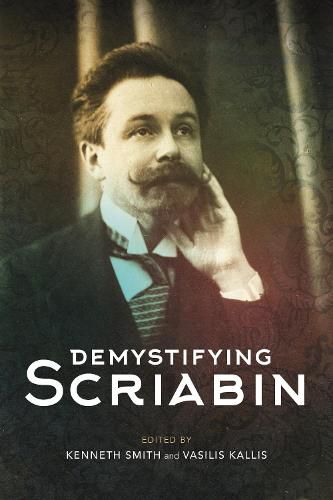Readings Newsletter
Become a Readings Member to make your shopping experience even easier.
Sign in or sign up for free!
You’re not far away from qualifying for FREE standard shipping within Australia
You’ve qualified for FREE standard shipping within Australia
The cart is loading…






This book is an innovative contribution to Alexander Scriabin (1872-1915) studies, covering aspects of Scriabin’s life, personality, beliefs, training, creative output, as well as his interaction with contemporary Russian culture. It offers new and original research from leading and upcoming Russian music scholars. Key Scriabin topics such as mysticism, philosophy, music theory, contemporary aesthetics, and composition processes are covered. Musical coverage spans the composer’s early, middle and late period. All main repertoire is being discussed: the piano miniatures and sonatas as well as the symphonies. In more detail, chapters consider: Scriabin’s part in early twentieth-century Russia’s cultural climate; how Scriabin moved from early pastiche to a style much more original; the influence of music theory on Scriabin’s idiosyncratic style; the changing contexts of Scriabin performances; new aspects of reception studies. Further chapters offer: a critical understanding of how Scriabin’s writings sit within the traditions of Mysticism as well as French and Russian Symbolism; a new investigation into his creative compositional process; miniaturism and its wider context; a new reading of the composer’s mysticism and synaesthesia. Analytical chapters reach out of the score to offer an interpretative framework; accepting new approaches from disability studies; investigating the complex interaction of rhythm and metre and modal interactions, the latent diatonic ‘tonal function’ of Scriabin’s late works, as well as self-regulating structures in the composer’s music.
$9.00 standard shipping within Australia
FREE standard shipping within Australia for orders over $100.00
Express & International shipping calculated at checkout
This book is an innovative contribution to Alexander Scriabin (1872-1915) studies, covering aspects of Scriabin’s life, personality, beliefs, training, creative output, as well as his interaction with contemporary Russian culture. It offers new and original research from leading and upcoming Russian music scholars. Key Scriabin topics such as mysticism, philosophy, music theory, contemporary aesthetics, and composition processes are covered. Musical coverage spans the composer’s early, middle and late period. All main repertoire is being discussed: the piano miniatures and sonatas as well as the symphonies. In more detail, chapters consider: Scriabin’s part in early twentieth-century Russia’s cultural climate; how Scriabin moved from early pastiche to a style much more original; the influence of music theory on Scriabin’s idiosyncratic style; the changing contexts of Scriabin performances; new aspects of reception studies. Further chapters offer: a critical understanding of how Scriabin’s writings sit within the traditions of Mysticism as well as French and Russian Symbolism; a new investigation into his creative compositional process; miniaturism and its wider context; a new reading of the composer’s mysticism and synaesthesia. Analytical chapters reach out of the score to offer an interpretative framework; accepting new approaches from disability studies; investigating the complex interaction of rhythm and metre and modal interactions, the latent diatonic ‘tonal function’ of Scriabin’s late works, as well as self-regulating structures in the composer’s music.